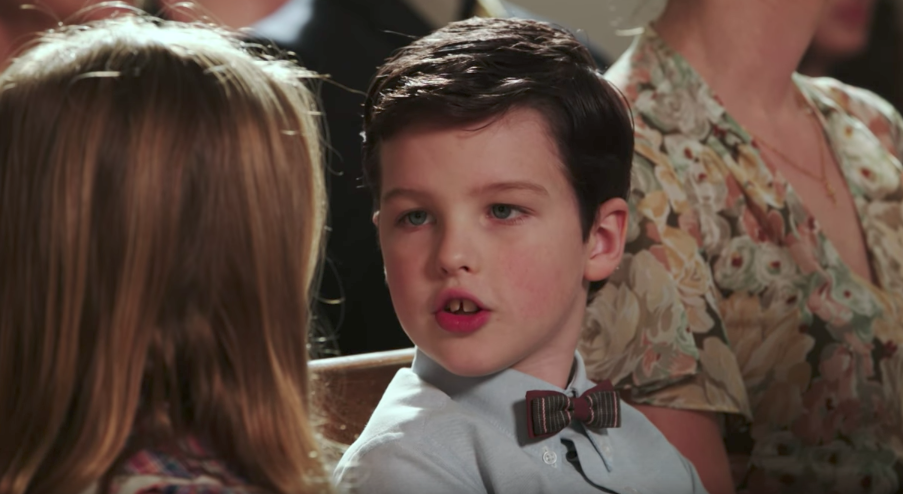The entertainment world is littered with bad ideas that make you wonder two things: How many people they had to go through to be made, and why nobody stopped them.
And now, you can add Young Sheldon, CBS’s The Big Bang Theory prequel, to that list.
According to Young Sheldon, there are two types of people: big, stupid, mean jocks who will beat you up just because they feel like it; and smart, introverted intellectuals who are better than you because they knew what Euclidean geometry was before hitting puberty.
The Big Bang origin story stars the 9-year-old version of Sheldon Cooper, who is just as annoyingly and uncomfortably matter-of-fact about his intelligence as his adult self. Growing up in Texas as the son of the high school football coach, things only become tougher for young Sheldon when he skips four grades and enters high school early.
Credit should be given to lead Iain Armitage for nailing Sheldon’s voice and persona. He works with the source material in an entirely believable way. It just so happens that the source material, Sheldon’s voice and overall persona, is cringe-worthy enough on a fully grown man and should, by no means, be replicated on a small child.
On several separate occasions while watching, I audibly expressed my annoyance and/or discomfort. To be clear, that’s not something I do very often and I’m sure my roommates thought there was something very wrong with me.
But when the show opens on a voiceover from adult Sheldon saying “I’ve always loved trains,” or young Sheldon exclaiming “Perhaps I’ll start a fad!” after realizing nobody else in high school wears bowties on the reg, it’s difficult not to let out an audible “ugh” or “oh my God” every once in a while.
There was a particular scene when Sheldon felt the need to call out his fellow classmates on violating the dress code and said the following:
“This girl’s blouse is diaphanous, which means I can see her brassiere.”
I had to pause the show so I could stand up and take a lap around my apartment.
The whole thing, as Diversions alumnus John Powers put it, felt like “horrible fan fiction.”
Between a mean jock brother, a disgruntled, beer-drinking dad and a mom doing her best to support her “misunderstood” son, the only redeeming character was Sheldon’s sassy, no-nonsense twin sister, Missy (Raegan Revord), who wins this title by being the only character that wasn’t an incredibly predictable stereotype.
The most exciting part of the show’s cast was the casting of Arwin (Brian Stepanek) from the Disney Channel classic The Suite Life of Zack and Cody as one of the high school teachers.
After premiering Monday night, CBS announced Wednesday that it would be the first new TV series this fall to be picked up for a full season.
The most pressing question that stems from watching the pilot, and upon learning it was the most-watched comedy premiere on any network in six years, is who in the world is this for? Young, nerdy children who feel they aren’t being represented enough in nighttime CBS comedies? People who love The Big Bang Theory so much they needed a whole entire new show to also watch? Do either of those categories actually exist?
This could be a heartwarming story about accepting the qualities that make us different, which is clearly the angle the creators are trying to take here.
The only problem is that this isn’t 70-some years ago when TV shows were just starting to become a thing and the concept of a straight, white male needing to be accepted by society was a story that had never been done before.
But it’s 2017, and the fact that CBS is throwing support toward Young Sheldon, which doesn’t say anything new or have anything to contribute to society other than to give Jim Parsons his first executive producer title, seems like not just an unfair choice, but a boring and unnecessary one.




